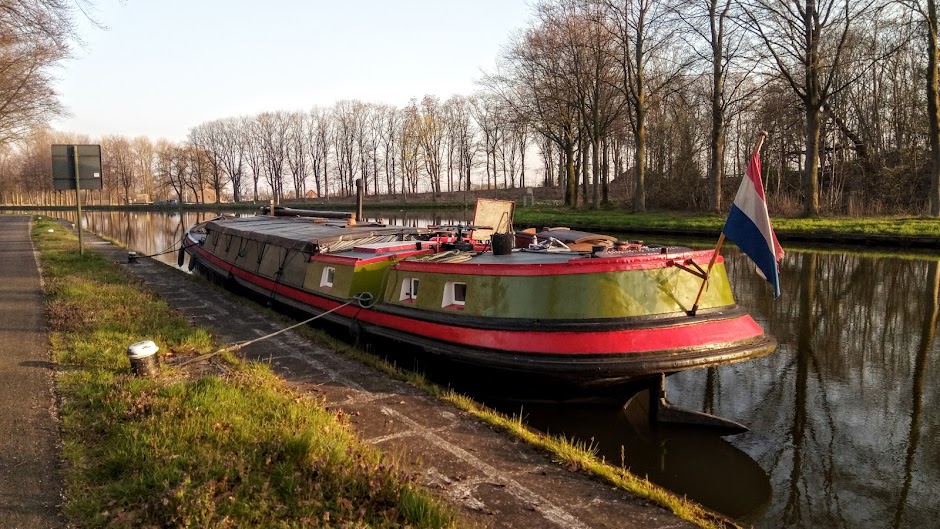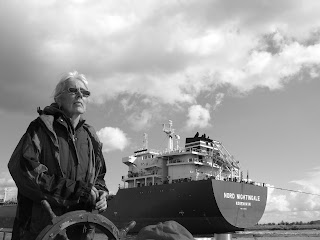Finding ways to promote my writing is not all that easy in a country where my audience is proportionally small because a) the language, while commonly spoken is not the language of social interaction and leisure and b) my subject matter makes my market even smaller. Consequently, I am always inordinately excited to be invited to give a book talk.
The International Women's Club of Rotterdam, otherwise known as Pickwick, invited me to talk about my first book African Ways a few years ago, and I found the reception warm, friendly and very very interested. So, when they asked me if I would come and talk to them about The Skipper's Child, I jumped at the opportunity. The invitation came months ago, so I had quite some time to prepare myself. Nevertheless, as they say, the best laid plans of mice and men find a way of going astray, and believe me, if they can, they will.
To cut straight to the point, the morning of my long anticipated talk turned, within seconds, into one big disaster.
The first thing that happened was that because I had to teach a class first and I had a lot to carry, I decided to drive to work. This is quite unusual for me, as I normally cycle, so my routine was already upset before I even started. I got my things together and then realised I had too much to carry to the car in one go, so I picked up my teaching bag, grabbed Sindy (who had to come too, of course) and the car keys and stepped out allowing the door to click shut behind me. As I heard it, my blood ran cold. I had the car keys and my teaching things, but my other bag with my other keys and my book talk presentation were all still behind the door - which was now firmly closed and effectively locked.
Now, I have a way of dealing with panic situations that's a bit odd. When I don't know what to do, I just keep going until I do know, a method that has become my modus operandi over the years. It's not always the best thing to do (definitely not when you are ploughing your boat into a bank or a harbour wall), but it does give you time to think - most of the time.
So, totally stymied by what I had just done, I took Sindy to the car, got in and started driving, and as I drove, I figured out a way through the mess. The upshot of my in-transit scheming was that I went and got poor Jodie out of bed, arranged with her that she would fetch my spare keys from her sister, go and collect my bag and presentation, and then after my lesson I would come and fetch everything from her and make a mad dash to the venue where I had to give the talk.
Luckily for me, and thanks to my wonderful daughter, this time it all worked out. I had a few other incidents in the meantime to make me think I should never have got up that morning, but I won't go into those here. Jodie's prompt, willing and timely help are all that really matter for this story.
Having rushed out of class and collected my goodies from Jo, I arrived at the rather grand conference venue, Lommerijk, exactly at the time I was due to arrive. Distinctly dishevelled, somewhat stressed and exhausted before I'd even started, Jean van der Heiden (charming, Scottish, married to a Dutch man) heard my story and sat me down with a cup of coffee to catch my breath. The only thing I wish is that she'd given me something to catch my hair too, as in the photo that she took after the talk, I saw just how dishevelled I really was!
The one good thing about my early morning misadventure was that it made a good ice-breaker to introduce myself with...nothing like a bit of drama, disaster and self-mockery to start things off with!
That done, I proceeded to give my talk. To set the scene for the reading, I gave each of those attending a map of the 1962 route that Arie's family took in their barge, as well as a photo of the real skipper's family (Koos's) and a brief bio of the family history. As I started explaining about what had inspired me to write my story, I realised how interesting it must all seem to 'outsiders'. I am now so used to this watery world, it's all quite normal to me, but as I watched my audience and saw their response to my account of the background to The Skipper's Child, I understood that in fact, I'm very privileged to have been part of something rather special.
I then read them an excerpt from the book. It's one I am especially fond of as it starts with the Kornet family eating their evening meal on board the Rival in Ghent while they listen to the news on their new transistor radio. It follows with Arie leaving the warm barge for a freezing walk into the city centre where he is struck by the beauty of the gracious waterside buildings. The passage finishes with his return to the barge when, from a nearby bridge, he sees a shadowy figure creeping along the gunwales and disappearing into his own sleeping quarters in the bows of the barge.
I'd hoped to read another extract - one in fact that Hans Astrom had suggested - but time was now running short, so I decided to leave it at that moment of suspense. It was a shame I didn't get to read the other passage, also one of suspense and drama, but it was probably the right choice, as there was a collective sigh (I hope of disappointment) when I said I was stopping.
After that, I answered a stream of questions about the story, the family and barge life in general. The genuine interest was fantastic. Even better, I parted with sixteen signed copies, and one lady took a second one to give to the head of English at the school her son attends. She told me very enthusiastically that this was just the kind of book they would like to have in the library because it combines Dutch culture with Dutch history as well as English language in a digestible form for youngsters. I wasn't about to disagree!
In the end, the book talk was the highlight of my day, my week and probably even my month. The reception I had from the members of Pickwick was so genuine, I really enjoyed myself. I think it's true to say that nearly all Dutch people have some connection to the world of commercial skippers, and while most of the women at Pickwick are imports, like me, their spouses are generally Dutch, so the connection is there. And, it doesn't matter who you are or where you are from, a life on the waterways is so different from the norm that it can only be fascinating for those who live on the land. It's a kind of parallel world that we can all see, but only very few actually experience. I am so lucky to have had even just a glimpse of it.
Thank you very much to Jean van der Heiden and the members of Pickwick for giving me this opportunity and welcoming me back so warmly.



















